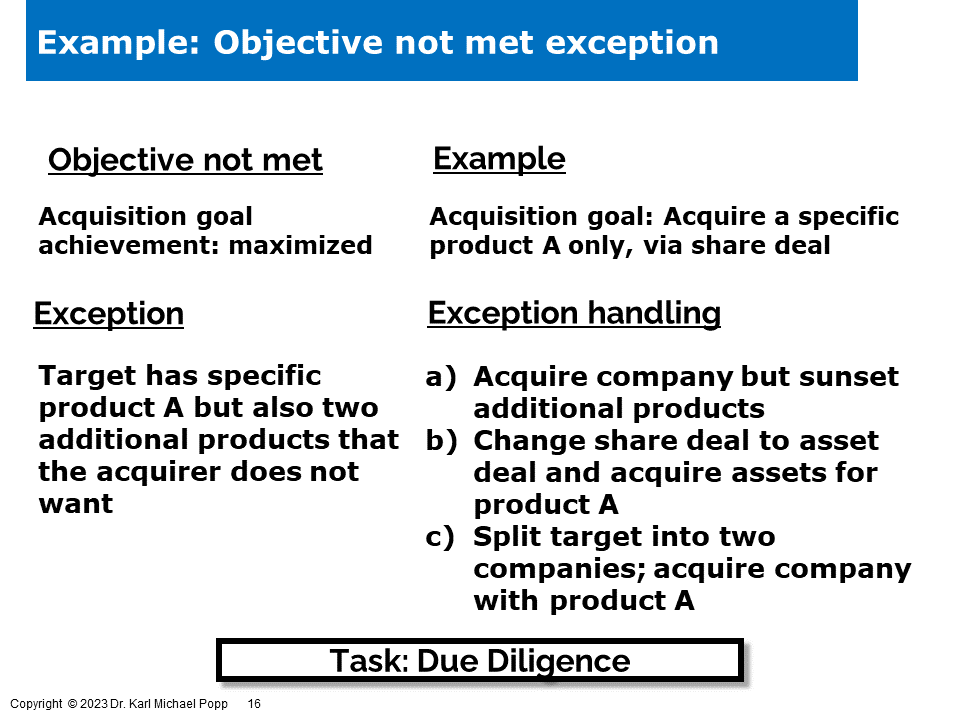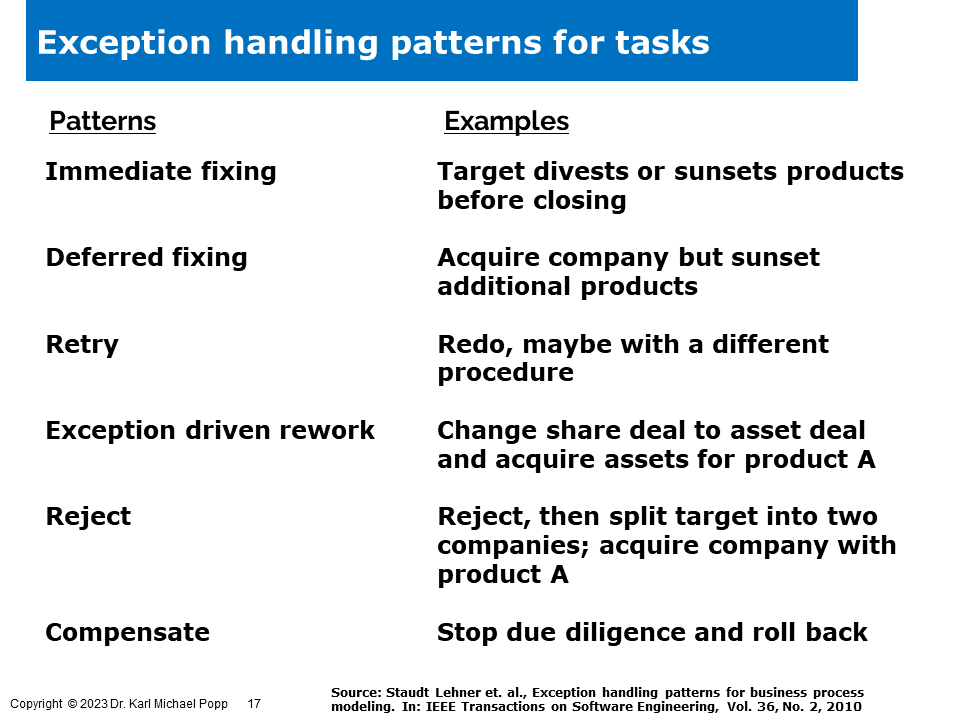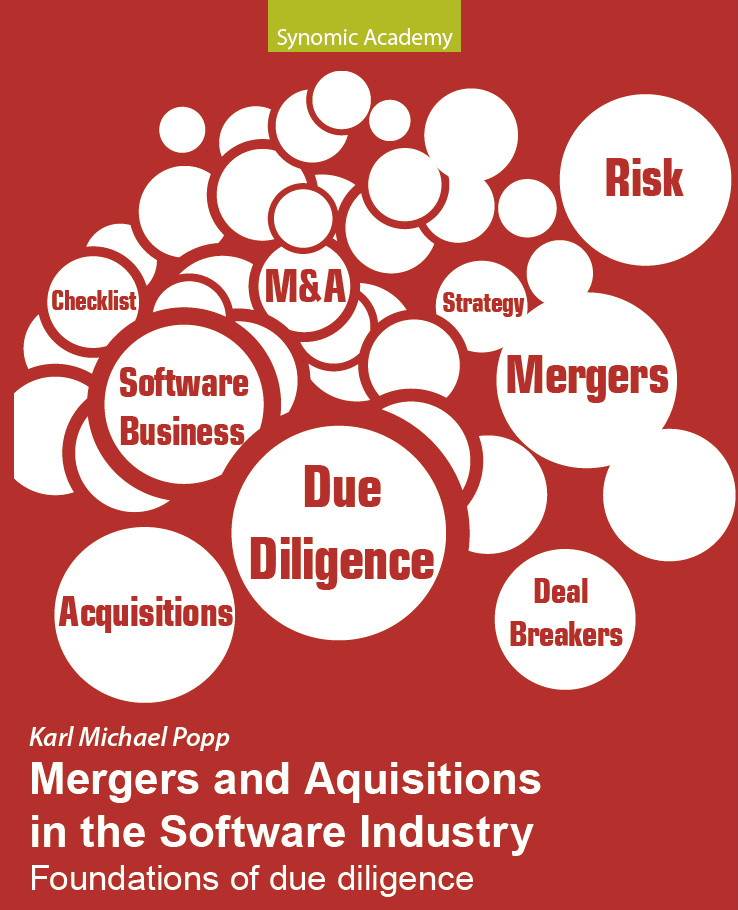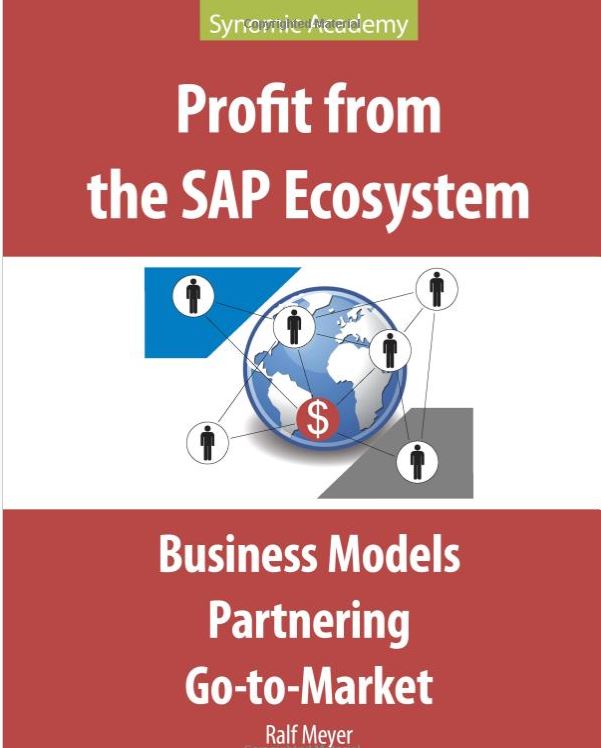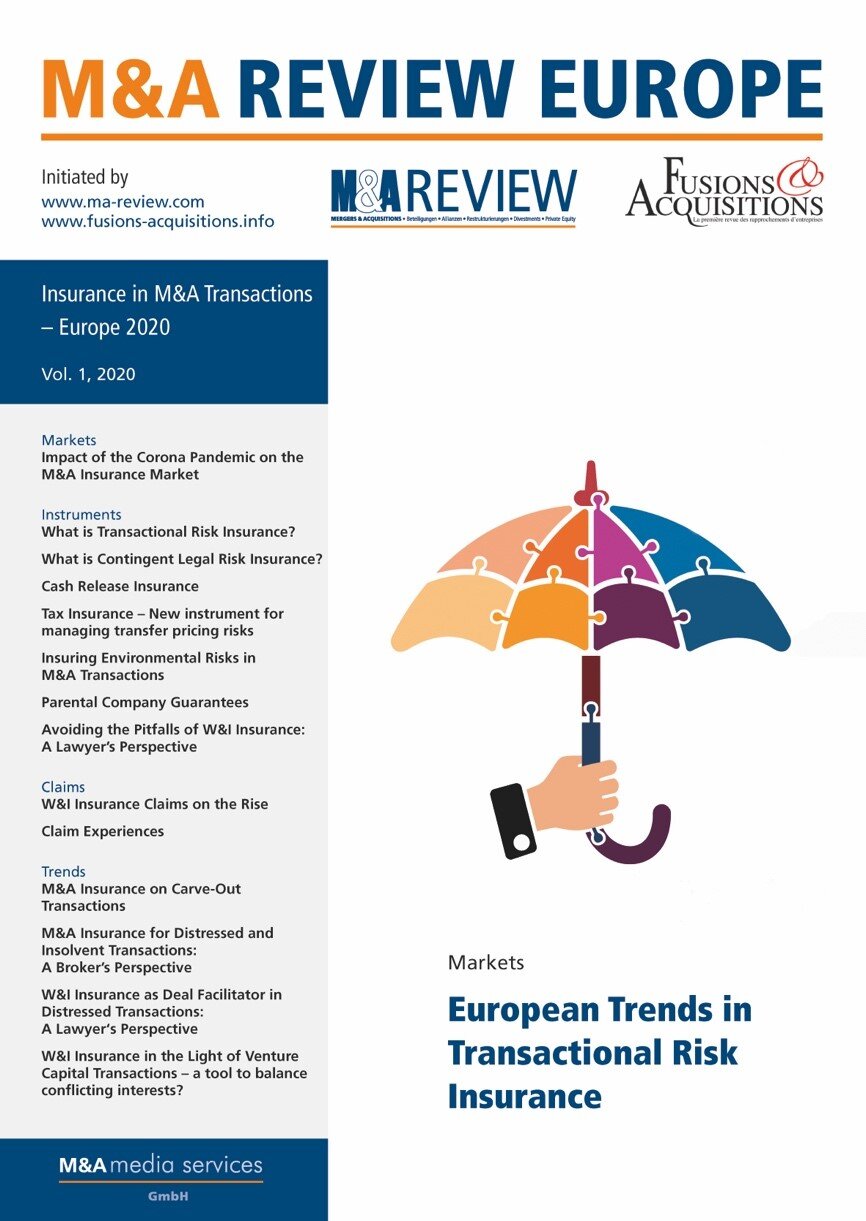New ways to handle task-related exceptions in mergers and acquisitions
Exceptions in the M&A process
Exceptions are present if
• Buyer or target or stakeholders change their expected behavior when transacting, transactions go wrong or do not generate the expected outcome
• Significant goals and objectives of tasks in the M&A process cannot be met or
• External effects hit (e. g. wars, embargoes, price hikes)
Such deviations from normal (expected) behavior are called exceptions. In this blog, we focus on exceptions of tasks in the M&A process. Let us pick one of the tasks of the process: Due diligence.
READ MY NEW BOOK
ORDER AT AMAZON
ORDER IN GERMANY
A task has goals (output-related) and objectives (quality of output). There are different ways to execute the task, which we call procedures. The attributes of the task Due Diligence are listed below.
Let´s have a look at an example in the picture below. An acquirer wants to acquire a target company who provides a single product A via a share deal. But the target company has more products. That raises an exception. What are the different ways to handle this exception?
READ MY NEW BOOK
ORDER AT AMAZON
ORDER IN GERMANY
The M&A process, with its complexities and potential pitfalls, demands a well-thought-out approach to exception handling. Fortunately, the literature cited in the picture provides valuable insights into various patterns that can guide us in defining exceptions and exception handling for each task involved in the M&A process.
READ MY NEW BOOK
ORDER AT AMAZON
ORDER IN GERMANY
READ MY NEW BOOK
ORDER AT AMAZON
ORDER IN GERMANY


